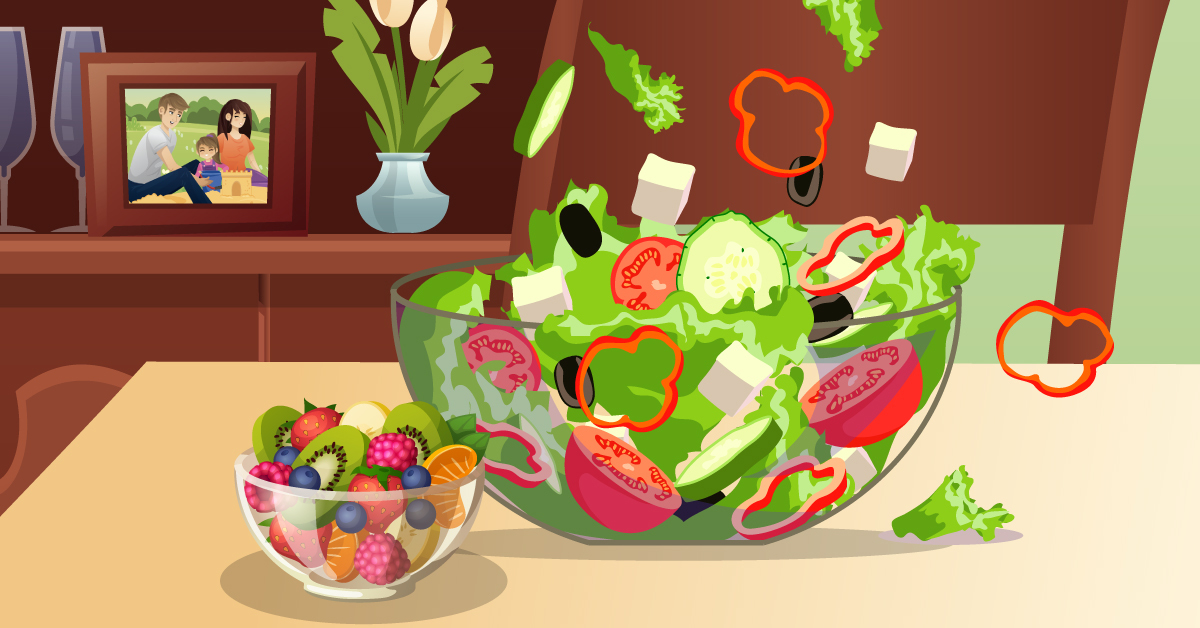A month about fruits and vegetables

Upcoming Health topics:
4th Quarter Focus: Fueling Our Bodies
- October: Fruits and vegetables
- November: Diabetes Awareness
- December: 12 Days of Nutrition
Fruits and vegetables CAN keep the doctor away
“You’re not leaving the dinner table until you eat all your vegetables!”
“An apple a day, keeps the doctor away.”
These are likely familiar sayings we all grew up with or even find ourselves repeating today.
But why is eating our fruits and vegetables so important? Will they really “keep the doctor away?” In many ways, the answer is, “YES.”
Fruits and vegetables, especially in their most natural state, are chocked full of essential vitamins, minerals, fiber, water, antioxidants and other immune-boosting nutrients. I understand, recently we have experienced global supply chain issues and high costs that are very negatively impacting many areas of the world, including here in the U.S. However, there are still many ways to achieve our needed intake of fruits and vegetables. And it’s so worth it. Keep reading to learn why and how.
What we eat and drink can affect our body’s ability to prevent, fight and recover from infections, and it can impact our mood. Incorporating certain foods, including fruits and vegetables, can help alleviate anxiety by encouraging the release of serotonin and dopamine, important neurotransmitters (Source: Mental Health First Aid USA, September 2022). In addition, people who eat more fruits and vegetables as part of an overall healthy diet, have a reduced risk of some chronic diseases since they both provide nutrients vital for health and maintenance of your body. (Source: myplate.gov)
Facts about fruit:
- Most are naturally low in fat, sodium, and calories. None have cholesterol.
- Are sources of many essential nutrients that many people do not get enough of:
- Potassium – helps maintain healthy blood pressure (bananas, prunes, cantaloupe, kiwi).
- Dietary fiber – helps reduce cholesterol, lowers risk for heart disease, important for proper bowel function.
- Vitamin C – important for growth and repair of body tissues, healing of cuts and wounds, healthy teeth and gums, aids in iron absorption.
- Folate.
- 1 Serving = 1 cup cut, baseball-size. Examples: 4” banana, small apple, 1 cup of berries.
- Daily recommendations = 2-3 servings.
Facts about vegetables:
- Most vegetables are naturally low in fat and calories.
- Important sources of:
- Potassium (sweet potatoes, tomato products, spinach, acorn squash).
- Dietary fiber.
- Folate.
- Vitamin A – keeps eyes and skin healthy, protects against infections.
- Vitamin C.
- 1 serving = 1 cup of raw or cooked or 2 cups of raw leafy salad greens.
- Daily recommendations = 3-5 servings.
Find the right amount for you by getting your MyPlate Plan.
Resources:
Challenges for you co-workers
For all employees: Fruit for Dessert: Nutrition Play #10 from WC Playbook
How to: Encourage your co-workers to reach for fruit instead of sweets for dessert this month. Maybe offer a bingo-type card to track their choices and have them submit it for a fun prize.
Consider this: Have healthy munchies for snacks rather than cookies in the office to help your
team along with this challenge. You could also have a sign-up sheet for everyone to share in the responsibility of providing healthy snack options throughout the month.
| Challenge Name | Dates | Details | Vitality Points | Where | |
|---|---|---|---|---|---|
| “On Your Own” Challenges | Fruits and Vegetables | Now -10/31 | 7-day streak within timeframe | 200 | MoveSpring |